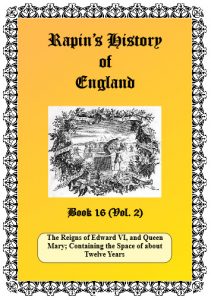Chapter I
The Second Part of the Reign of Charles I
November 3rd 1640
The State of The King’s Affairs
THE KING’S AFFAIRS, AT THE MEETING PARLIAMENT, were in a very ill situation. Instead of subduing the Scots, as he flattered himself, he had the mortification to see them enter England, force the passage of the Tine, defeat a considerable body of his army, and render themselves masters of Newcastle.
Moreover, he saw his own troops not very ready to serve him. They consisted, for the most part, of soldiers listed against their wills, in the several counties, and prejudiced, like the rest of the nation, against the government. Besides, the valour of the Scots being magnified by those who had been routed, and by the King’s private enemies, inspired the English troops with some terror. Moreover, the King wanted money to pay them. His whole resource was the two hundred thousand pounds borrowed of the city of London, till it should please the Parliament to furnish him with the necessary supplies. But he could hardly expect that the Parliament would be favourable to him. It was universally believed, he had called it against his inclination, and because he could find no other way to free himself from his present circumstances.
What had passed in the four Parliaments held since the beginning of his reign, the dissolutions of these Parliaments, with heat and animosity, the imprisonment of their members, the discontinuance of Parliaments for twelve years, the taxes imposed by the King’s sole authority during that space, the monopolies upon all sorts of goods and commodities, the decay of trade; the open protection granted by the King to the Papists and Armenians, the severities exercised upon the Presbyterians, the innovations in religion, the almost universal suspicion of a design to introduce Popery, the excessive authority usurped by the Council and Star-Chamber, the corruption of the Judges, in a word, the principles of arbitrary power asserted by the Court, bred a general discontent.
